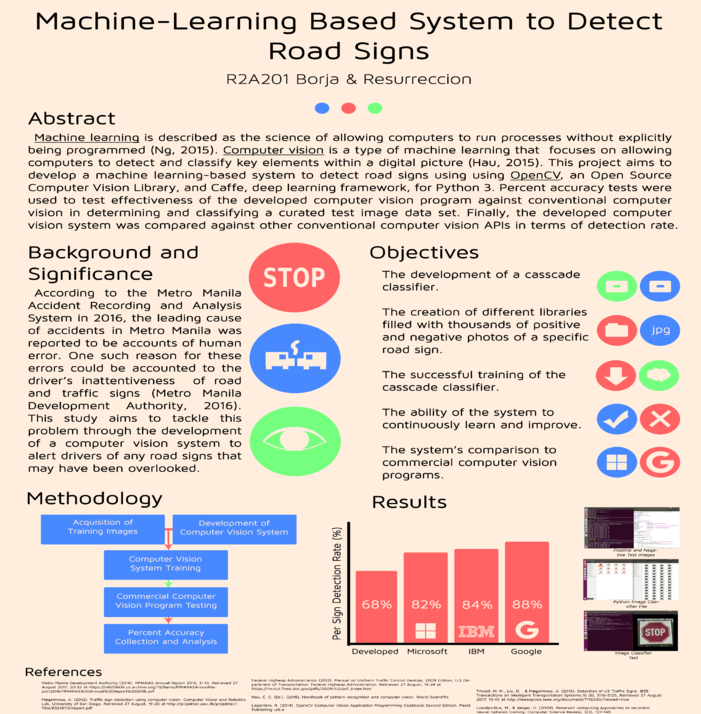
Project Overview
Goals:
- Looking for ways to make Glove Car autonomous
- Road Signs instead of line tracing
- Be able to learn and implement Artificial Intelligence through Caffe and OpenCV
- Create a system that could be taught the detection and classification of specified Philippine road signs
Methodology:
Road Sign Detection Algorithm
We used the trained the machine learning system under the Caffe Deep Learning Framework. We scraped the internet for pictures of necessary road signs and converted multiple gigabytes of videos we took into jpg files in order to feed the machine learning algorithm. We planned to use only OpenCV in the beginning but we soon fiund out it was too difficult to implement. We settled with Caffe because at that time the Movidius NCS only had support for this.
Movidious Neural Network Compute Stick
We used the Intel Movidius Neural Compute Stick to perform the necessary high-level computations without the need a high-end processor to run the taxing processes. Because we intended to have a camera mounted on the dashboard of a car, we wanted to find a way to perform neural network algorithms without being connected to the cloud. We settled with the Movidius NCS to adress this problem.
Model Training
We scraped the internet for pictures of necessary road signs. We also took multiple videos of Philippine Road Signs and saved them as JPEG images in order tohave a robust enough data set. We were mainly dealing with images of Philippine Stop Signs and Yield signs just to show whether or not the process is feasible. In the end, our data set was composed of around 4000 images.
Test Results
|
Total Num of Signs |
Detected |
False Negatives |
False Positives |
|
|
Stop Classifier |
100 |
88 |
12 |
11 |
|
Yield Classifier |
100 |
72 |
17 |
16 |
|
Overall |
200 |
160 |
37 |
27 |
If you’re interested in learning more about this project or if you’re interested in a copy of our final paper, you can email me at mborja2000@gmail.com.